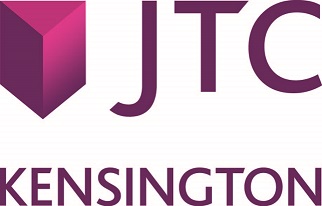Reporting Framework In Malaysia For Beneficial Owners - (Archive)
Towards ensuring that the corporate ecosystem is free from illicit activities such as money laundering, terrorism financing and other serious crimes, many jurisdictions including Malaysia have introduced measures to identify individual persons behind business entities.
Based on feedback from the Financial Action Task Force (“FATF”) and in line with the legislative improvements made by other jurisdictions, the Registrar of Companies in Malaysia (“CCM” or “the Registrar”) had on 1 March 2020 issued a Guideline for Reporting Framework for Beneficial Ownership of Legal Persons (“the Guidelines”) for all legal persons registered under the respective laws governed by the CCM.
The CCM is also proposing to amend the Companies Act 2016 (“CA 2016”) by introducing new policies to enhance the provisions relating to the beneficial ownership framework to introduce more transparency and to bring Malaysia in tandem with international best practices.
Applicability
The Beneficial Ownership (“BO”) reporting framework applies to all legal persons stated below, unless they are exempted:
- Local and Foreign companies
- Local and Foreign limited liability partnerships
- Businesses (sole proprietors and partnerships)
Based on the Guidelines, the following legal persons would be exempted from the BO reporting framework:-
- Companies which are licensed by Bank Negara Malaysia
- Persons regulated under the securities laws by the Securities Commission
- Companies whose shares are quoted in either a local or foreign exchange
- Companies whose shares are deposited in the central depository
Nonetheless, this exemption does not exonerate the exempted entities from providing the BO information to other regulators, competent authorities and law enforcement agencies in accordance with other written laws.
Identifying Beneficial Owners
Beneficial owners are natural persons who ultimately own or control a legal entity or arrangement.
For companies limited by shares, the ultimate owner of shares covers both from the perspective of ownership and effective control. It is applicable to an individual person who meets one or more of the following criteria:
- Has interest, direct or indirect, in not less than 20% of shares of the company;
- Holds, direct or indirect, not less than 20% of the voting shares of the company;
- Has the right to exercise ultimate effective control whether formal or informal over the company, the directors or management of the company;
- Has the right or power, direct or indirect, to appoint or remove a director(s) who holds a majority of the voting rights at the meeting of directors of the company; or
- Is a member of the company and, under an agreement with another member of the company, controls alone a majority of the voting rights in the company.
Overview of the Beneficial Ownership Reporting Framework
The framework imposes an obligation on companies and limited liability partnerships registered under the CA 2016 to –
- take reasonable steps to identify, obtain and verify the BO information;
- record the requisite BO information into the Register of BO;
- keep the BO information accurate and up-to-date and enable access to the BO information in a timely manner;
- update the BO information whenever there is a change to the particulars of the BO and to notify the Registrar;
- keep the BO information and supporting documents at the registered office or where the register of members/register of partners is being kept.
Company secretarial companies are to endeavour to maintain strict confidentiality in handling reporting of the BO information to the regulatory authorities.
Introduction of the new Register of Beneficial Owners
With the introduction of the new section 56C of the CA 2016, companies are required to record and maintain all information relating to BOs in the register of BO. To ensure the BO information is up to date, accurate and may be obtained in a timely manner, mandatory reporting of BO information is crucial for companies to record such information in the register of BO.
Companies are required to lodge changes to the BO information within fourteen (14) days from the date of the change of information recorded in the register of BO.
Annual Return
The current CA 2016 does not provide that it is a mandatory annual obligation to submit the BO information to the Registrar.
It has been proposed that companies are required to provide for the particulars on BO information as part of the annual return. Companies would submit their annual return together with the BO information with the Registrar at least once a year.
Access to Beneficial Owners information
Companies and limited liability partnerships must give access as and when required in a timely manner, the BO information contained in the register of BO to –
- competent authorities and law enforcement agencies;
- the BO whose name has been entered in the register of BO; and
- any other person authorised by the BO.
For the avoidance of doubt, a BO shall only be given access to the BO information relating to him/her.
Transitional Period
| Transitional Period
1 March 2020 – 31 December 2020 |
Post Transitional Period
1 January 2021 onwards |
| Existing companies and limited liability partnerships are required to obtain,
keep and update the BO information at the entity’s level. |
The Registrar will invoke section 56(6) of the CA 2016 and companies will have the obligation to submit the BO information to the Registrar within 14 days after the transitional period ends or such further extended time frame as the Registrar may determine. |
Conclusion
Kensington Malaysia could assist you to prepare and set out appropriate internal policies for the eventual implementation of the BO reporting framework in Malaysia.
For more information, please contact Mr Raymond Wong at raymond.wong@kensington-trust.com or Mr David Kong at David.Kong@kensington-trust.com.
